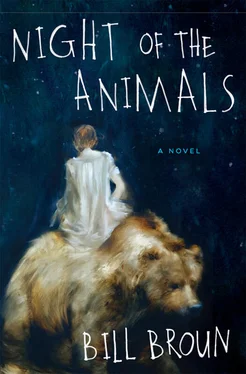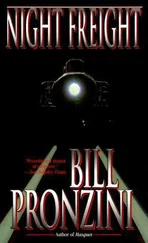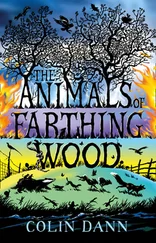Yet somehow, in ugly West Bromich, five decades before the Property Revolts, before the big suicide cults, before the All-Indigent zones, and before King Henry IX, two sweet grandsons in the line were born. Since Winefride’s other grandchildren were girls, and the Wonderments passed from gender to gender and only every other generation, Cuthbert and Drystan represented to her — as one of her serious flaws was a habit of jumping to direst conclusions — the last of the line. But for all England knew or cared, she might be right. Winefride determined soon after Drystan’s birth that she would need to work around his facile mother and abusive father to make sure the boy understood his birthright.
Her own children, along with countless other Worcestershireans and Salopeans, *had been tricked, as she saw it, by Birmingham’s industry. All the Black Country and Birmingham and indeed much of the whole world lived in a state of fatal anomie, alienated from nature, and dependent on “machines,” as she called all technology.
“We was going after akerns,” she once told Cuthbert, “pounding ’em into flour whilst the hullocks — that’s what we called people like your father — were clammed with hunger.” She whispered the next words: “Your mummy and daddy, they’re rawny-boughs nowadays, as far as it goes. That’s the hard truth. They canna go without their satellites and tellies and Norton bikes,” which was what she called all motorcycles. “But thee and I and Drystan, we can survive off the trees, canna we? We can always go back into the Wyre and up into the Marches and my hills of Clee.”
And survive Winefride had, with her green gleam. But never prospered. The truth was, even before her birth, the landscapes in and around Wyre had been chopped to bits by mining. “Despert chaps, young and owd,” as she called them, sometimes by the thousands at a time, used to vie to deform the very hilltops of Clee and all the Welsh Marches with nothing but hand tools. “They was bent on steekling the hills,” she said, “as if they hills ’ermselves were fattened little porkets for slaughter.” With the Depression, the mining economy had collapsed. She herself, by love and by poverty, was also in time driven off the Clees, like most of her cousins. Indeed, she would go no farther east than the Wyre — a matter of a few miles — until she was forced, as an old woman, by her own petty, city-loving, money-obsessed son-in-law.
before the last photo crumbles
CUTHBERT AND DRYSTAN NOW CROWDED INTO A window, gazing out, elbowing each other.
“I dunna want to go now,” said Drystan, looking toward the forest. “I corr.”
Mary Handley, grimacing at Winefride, said, “Now look what you’ve done, Mum. You’ve worried that child to death.”
“No,” said Drystan. “I’m not afraid of the Wyre, Mum. A’m afraid I’ll never want to come back.”
Cuthbert said, “Well, I’m only a whittle, whittle, whittle afraid.”
They gawked at a lone roan goat, grazing in a small pasture across the road. Cuthbert — whose clearest idea of animals was the moggies and birds of Birmingham and Dylan, the daisy-munching hippie rabbit on The Magic Roundabout —had never seen a goat before.
The animal raised its head nervously, but it kept chewing steadily.
“She’s the prettiest thing I’ve ever seen! Is she a kind of cow?” Cuthbert asked earnestly.
“Dunno, really,” said Drystan. From his pocket, he pulled out a thornless haw-tree twig with a few leaves on it, and began twirling it in his hand. He was always picking up sticks he would fiddle with for hours then toss on his dresser.
“Heard any animals lately?” Winefride suddenly asked the two aunties, as if inquiring about the latest gossip.
The big aunties nodded jovially in agreement, with occasional fixed love-stares at the two children.
“Of course — yes, yes, yes,” said Auntie Bettina. “There’s a Welsh toy ger in there now, they’re saying.”
“Suuuuuuuuure,” said Cuthbert’s father, smirking. He kicked his legs out from the sofa rather impertinently. “That’s what these ones need,” glaring at his sons.
With the proud trip out of Birmingham in his squatty new Hillman Imp, he was almost in as good a mood as he got, but he still seemed like he had, as his mother-in-law would put it, “a dog in his belly.”
“Now these boys could use some scaring-up — and discipline. Especially old Cuddy.” Cuthbert didn’t like this nickname. His father grinned, and added, “They could run into a pole cat, mind you.”
The word discipline from his father’s lips didn’t normally play well in small gatherings. It was like a hangman singing the praises of well-toned necks. His mother once told him, “Your dear old dad wouldn’t give away the droppings of his nose on a frosty morning, and if he said he did, he’d be lying about it.”
“Discipline? Scaring?” said Gran. “Shhhh! You inna understand at all.” She spoke good-naturedly, but there was a flash of a swishing razor in her tolerance.
“That’s what I said,” said Henry. “These boys respect that — something they learnt from me. I don’t mind giving them a little podge on their bottoms from time to time. Or with my belt.”
“Stop it, Hank,” said their mother.
“Give the forest its due respect, but I dunna think there’s any toy gers anymore,” said Winefride, which is what people on the Welsh Marches used to call polecats. She looked upward for a moment, as though reviewing a long-memorized taxonomy. “But there’s other things, just as special as polecats. You know, we used to have lions in England and plenty o’ wild cats. Tis’ true. Back in the days of the barrows and stone tombs, when ‘did those feet in ancient time,’ as they say. You ’ad lions then, by jings. You know what I’m on about. You know, Hank.”
“Never,” said their father. “I do not know. That’s all rubbish. Drink your tea, Mum.” His smile was gone.
“Show some respect,” said Cuthbert’s mother.
“Humph,” said Winefride. “It’s all right.”
Cuthbert’s mum said to her husband, sighing with fatigue, “Aren’t you capable of humoring them a bit, Hank? Can’t you be decent?”
Auntie Bettina, the sharper of the two aunts, tried to change the subject. She shared most women’s remarkably unswerving and politely furtive disdain for her nephew, and she felt sorry for Winefride, a Clee girl who had been dragged off to West Brom by a sore bore of a son-in-law. Winefride wasn’t blood, but she felt far more a kindred spirit than Henry.
“You said you brought that camera of yours, Henry?”
Henry frowned at the woman with a harsh, instinctual alarm, and he almost ducked down in his seat. He held a flinty-eyed posture of defensiveness for a moment, as if preparing for some vast wave of other people’s messy joys to wash him away.
“Yeah?” he said, with a porcine grunt so routine for him, he actually felt it as sociable noise.
“Henry!” his wife scolded. He sat up a bit, looking around with a simpering smile. His wife had a way of snapping him out of his lugubriousness.
“Sorry,” he said. “Yeah, you wouldn’t believe the cost of film these days. Mr. Wilson’s ‘pound in the pocket’ is a right laugh.”
“Henry, you’ll be happy to take some piccies, won’t you?”
“Oh, ar, of course. A’right.”
After a few minutes, and much lecturing about the virtues of American manufacturing, their father produced his old Kodak Brownie 127, a small camera made of Bakelite, which Henry Handley swore by. He could coax unforgettable images in full color from it. There were three subjects — Cuthbert and Drystan or almost anyone posed in front of his or a neighbor’s car; local construction projects; or mute swans at the park. The man loved white swans.
Читать дальше












